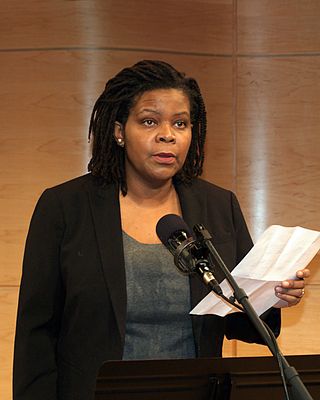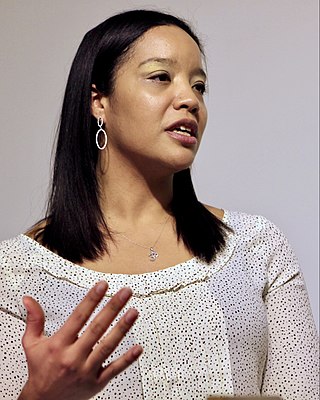
Richard McKay Rorty was an American philosopher. Educated at the University of Chicago and Yale University, he had strong interests and training in both the history of philosophy and in contemporary analytic philosophy. Rorty's academic career included appointments as the Stuart Professor of Philosophy at Princeton University, Kenan Professor of Humanities at the University of Virginia, and Professor of Comparative literature at Stanford University. Among his most influential books are Philosophy and the Mirror of Nature (1979), Consequences of Pragmatism (1982), and Contingency, Irony, and Solidarity (1989).

Charles Margrave Taylor is a Canadian philosopher from Montreal, Quebec, and professor emeritus at McGill University best known for his contributions to political philosophy, the philosophy of social science, the history of philosophy, and intellectual history. His work has earned him the Kyoto Prize, the Templeton Prize, the Berggruen Prize for Philosophy, and the John W. Kluge Prize.

Kwame Akroma-Ampim Kusi Anthony Appiah is a British American philosopher and writer who has written about political philosophy, ethics, the philosophy of language and mind, and African intellectual history. Appiah was the Laurance S. Rockefeller University Professor of Philosophy at Princeton University, before moving to New York University (NYU) in 2014. He holds an appointment at the NYU Department of Philosophy and NYU's School of Law. Appiah was elected President of the American Academy of Arts and Letters in January 2022.
African philosophy is the philosophical discourse produced in Africa or by indigenous Africans. African philosophers are found in the various academic fields of present philosophy, such as metaphysics, epistemology, moral philosophy, and political philosophy. One particular subject that several modern African philosophers have written about is that on the subject of freedom and what it means to be free or to experience wholeness. Philosophy in Africa has a rich and varied history, some of which has been lost over time. Some of the world's oldest philosophical texts have been produced in Ancient Egypt (Kemet), written in Hieratic and on papyrus, from ca. 2200 to 1000 BCE, one of the earliest known African philosophers was Ptahhotep, an ancient Egyptian philosopher. In general, the ancient Greeks acknowledged the Egyptian forebearers, and in the fifth century BCE, the philosopher Isocrates declared that earliest Greek thinkers traveled to Egypt to seek knowledge; one of them Pythagoras of Samos who “was first to bring to the Greeks all philosophy.” In the 21st century, new research by Egyptologists has indicated that the word "philosopher" itself seems to stem from Egypt: "the founding Greek word philosophos, lover of wisdom, is itself a borrowing from and translation of the Egyptian concept mer-rekh (mr-rḫ) which literally means “lover of wisdom,” or knowledge." In the early and mid-twentieth century, anti-colonial movements had a tremendous effect on the development of a distinct modern African political philosophy that had resonance on both the continent and in the African diaspora. One well-known example of the economic philosophical works emerging from this period was the African socialist philosophy of Ujamaa propounded in Tanzania and other parts of Southeast Africa. These African political and economic philosophical developments also had a notable impact on the anti-colonial movements of many non-African peoples around the world.
Lewis Ricardo Gordon is an American philosopher at the University of Connecticut who works in the areas of Africana philosophy, existentialism, phenomenology, social and political theory, postcolonial thought, theories of race and racism, philosophies of liberation, aesthetics, philosophy of education, and philosophy of religion. He has written particularly extensively on Africana and black existentialism, postcolonial phenomenology, race and racism, and on the works and thought of W. E. B. Du Bois and Frantz Fanon. His most recent book is titled: Fear of Black Consciousness.
Charles Wade Mills was a Jamaican philosopher who was a professor at Graduate Center, CUNY, and Northwestern University. Born in London, Mills grew up in Jamaica and later became a United States citizen. He was educated at the University of the West Indies and the University of Toronto.

Ralph Barton Perry was an American philosopher. He was a strident moral idealist who stated in 1909 that, to him, idealism meant "to interpret life consistently with ethical, scientific, and metaphysical truth." Perry's viewpoints on religion stressed the notion that religious thinking possessed legitimacy should it exist within a framework accepting of human reason and social progress.
Irwin Edman was an American philosopher and professor of philosophy.
Emmanuel Chukwudi Eze was a Nigerian philosopher. Eze was a specialist in postcolonial philosophy. He wrote as well as edited influential postcolonial histories of philosophy in Africa, Europe, and the Americas. He brought Immanuel Kant's racism to light among Western thinkers in the 1990s, an area of Kant's life that Western philosophers often gloss over. Influences in his own work include Paulin Hountondji, Richard Rorty, David Hume, and Immanuel Kant.
Rogers Garland Albritton was an American philosopher who served as chair of the Harvard and UCLA philosophy departments. He published little and inspired the entry "albritton" - a contraction of "all but written" - in the Philosophical Lexicon begun by Daniel Dennett. Albritton's specialties included ancient philosophy, philosophy of mind, free will, skepticism, metaphysics and the work of Ludwig Wittgenstein.
Black existentialism or Africana critical theory is a school of thought that "critiques domination and affirms the empowerment of Black people in the world". Although it shares a word with existentialism and that philosophy's concerns with existence and meaning in life, it "is predicated on the liberation of all Black people in the world from oppression". It may also be seen as method, which allows one to read works by African-American writers such as W. E. B. Du Bois, James Baldwin, and Ralph Ellison in an existentialist frame. Lewis Gordon argues that Black existentialism is not only existential philosophy produced by Black philosophers but is also thought that addresses the intersection of problems of existence in black contexts.
Africana philosophy is the work of philosophers of African descent and others whose work deals with the subject matter of the African diaspora. The name does not refer to a particular philosophy, philosophical system, method, or tradition. Rather, Africana philosophy is a third-order, metaphilosophical, umbrella-concept used to bring organizing oversight to various efforts of philosophizing. Africana philosophy is a part of and developed within the field of Africana studies.

Anita LaFrance Allen is the Henry R. Silverman Professor of Law and professor of philosophy at the University of Pennsylvania Law School. She was formerly Vice Provost for Faculty from 2013 to 2020.

Annette Gordon-Reed is an American historian and law professor. She is currently the Carl M. Loeb University Professor at Harvard University and a professor of history in the university's Faculty of Arts & Sciences. She is formerly the Charles Warren Professor of American Legal History at Harvard University and the Carol K. Pforzheimer Professor at the Radcliffe Institute for Advanced Study. Gordon-Reed is noted for changing scholarship on Thomas Jefferson regarding his relationship with Sally Hemings and her children.
John H. McClendon III is a professor in the department of philosophy at Michigan State University. He holds a doctorate in philosophy from the University of Kansas, and taught at Binghamton University, Eastern Illinois University, University of Illinois Champaign/Urbana, Bates College, and the University of Missouri before coming to Michigan State University. His areas of focus include African philosophy, marxist philosophy, philosophy of African-American studies, and the history of African-American philosophers.
Peter Eli Gordon is a historian of philosophy, a critical theorist, and intellectual historian. The Amabel B. James Professor of History at Harvard University, Gordon focuses on continental philosophy and modern German and French thought, with particular emphasis on the German philosophers Theodor Adorno and Martin Heidegger, critical theory, continental philosophy during the interwar crisis, and most recently, secularization and social thought in the 20th century.

Kathryn Sophia Belle, formerly known as Kathryn T. Gines, is an American philosopher. She is associate professor of philosophy at Pennsylvania State University. Much of her work has focused on increasing diversity within philosophy, and she is the founding director of the Collegium of Black Women Philosophers.
Paul Christopher Taylor is an American philosopher, author, and W. Alton Jones Professor of Philosophy at Vanderbilt University. Previously he taught philosophy and African American studies at Pennsylvania State University. He writes on race theory, aesthetics, pragmatism, social and political philosophy, and Africana philosophy.

Marcia Chatelain is an American academic who serves as the Penn Presidential Compact Professor of Africana Studies at the University of Pennsylvania. In 2021, she was awarded the Pulitzer Prize for History for her book Franchise: The Golden Arches in Black America, for which she also won the James Beard Award for Writing in 2022. Chatelain was the first black woman to win the latter award.
Erin I. Kelly is an American philosopher and author. She is a professor of philosophy at Tufts University.








